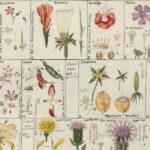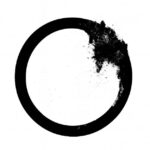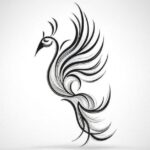
ALCHEMICAL MEDICINE
Summarizing what was stated in the previous chapter, the Quintessence of a drug would act, according to alchemists, on the Astral Body of the patient with a real transmutation, that is, transforming everything that is impure, unhealthy and toxic, into genuine, healthy and normal elements. .
However, Alchemical Medicine directs its interest not only towards the mineral and vegetal world, but also towards man. Using the same procedures and distilling the noblest part of the human organism, i.e. the blood, the Blood Quintessence was obtained, which was used as a panacea in many diseases.
In particular, the blood was fermented in the “alchemical vase” at high temperatures, and while the clot was being produced, various volatile products evaporated towards the bottom of the “cucurbit”, precipitating in the still and being enhanced with salification and solution procedures, to the point of extracting the quintessence of blood-matter, the use of which was the prerogative of the true Wise Ones.
The more the quintessence was extracted from the blood, the more powerfully the healing power of the remedy manifested itself.
Paracelsus, the greatest exponent of Magical Alchemy of the Middle Ages, dedicated himself with passion to the extraction of many healthy principles from blood, which he used successfully in various situations of illness. Legend has it that one day Paracelsus wanted to experiment with alchemical procedures on himself, but in the end he decided not to try the experiment again when he noticed that many of his patients were starting to chase him to draw more blood from him! …
The power of animal Alchemy still represents a mystery today, to which free access was never given. The sorcerer of antiquity used to project love or torment by acting on the blood of his victims, in order to gain personal advantage. Such, however, is the dimension of superstitious and witchcraft Alchemy, linked to unhealthy beliefs, which represent the least intelligent and most barbaric way of using the ancient knowledge of Alchemy.
The Philosopher’s Stone was mostly considered a legend, and for centuries the alchemists searching for it were derided as visionaries. Yet the “metaphysical” meaning of its fabrication is quite clear.
In the Middle Ages, the wise men of the Inquisition fueled the bonfires of hatred with the “corporeal materials” of many alchemists, considered heretics for not having passively accepted the dogmas of faith and ignorance.
Thus the “Matter of Art” ended up being hidden in the treatises on Alchemy themselves, to the point of giving the impression of the birth of exalted minds. The Materia Prima, on which the alchemists carried out their fermentations, was the subject of many gratuitous inferences. And legends and erudite fables were produced to hide the “less convenient” aspect – for those times – of the Alchemical Art.
This brings us to the last part of this brief discussion. Spiritual Alchemy claims to create a soul from scratch, acting on the body of the alchemist himself, without sparing moral and physical suffering. This is probably the least known and probably least appealing aspect of Alchemy, especially for profiteers and materialists.
Here we enter a different field of investigation. The problem of the human soul may appear inconsistent with that of Alchemical Medicine. However, this is only an impression. Indeed, the most important objective of Alchemy was precisely the attempt to make man a “mutant being”, to the point of transforming him into a spiritualized body.
At this point it is a question of making small concessions to the legend, renouncing for a few moments the rigid reason that hinders, as in all Religions, the empathetic understanding of the truth.
According to alchemical doctrine, the “spiritualization” of the human being is possible in anyone who knows what to do. This is clearly an idea that is incompatible with Christianity and cannot be disclosed, without creating dangerous dismemberments in the pastoral unity of the Church.
Implicit in the idea of human angelization, considered possible, but in no case automatic, is the concept that in the majority of humanity, death inexorably marks the end of life, at least in its most common meaning.
If we want to understand this axiom, impenetrable without the common sense of a sage, we must penetrate the mentality of the alchemist. Religion saves man always and in any case, postponing his destiny to the end of time, when the “Trumpets of Judgment” will sound to announce to that soul that it will be resurrected in the unity of an immortal entity.
While awaiting the Judgement, the believer will warm himself in the warmth of the Collective Soul of the Church, in Heaven, in the vision of Christ; or in Hell, among devils and she-devils. But for the majority of Christians, the post-mortem will end with a few centuries in Purgatory, waiting for to amend oneself from the sins accumulated over the course of a single existence!… This is evidently a substantially “purgatorial” vision, not acceptable for an alchemist.
According to “Fulcanelli”, a modern alchemist, we must not forget about the Shadow, as it is formed in the projection of light against a body. A shadow is never intelligent, even if it reproduces the profile of a man, following his movement.
The post-mortem would therefore be, for the alchemist, a “Shadow State”, that is, the condition of an evanescent, partially unconscious Entity, capable only of reproducing in a minimal part the character of that somato-psychic unity which in life they called themselves a human being.
In short, the alchemist’s noble attempt was to animate his own Shadow, making it conscious and almost tangible, corporeal. Or even better, to infuse vital energy into the Shadow, transferring one’s consciousness into the new Body in order to make it immortal already in life.
It was evidently an ambitious goal, distant from the law of Nature and not reconcilable with any scientific observation.
First of all, it was necessary to carry out purification work, until the essence of that body was traced, that is, its “Materia Prima”. Then it was necessary to strengthen that essence a thousand times, transmuting the vile Lead of the mortal soul into “Golden Stone”, that is, into a Divine Principle, not comparable to any other component of the material body.
Only at the end of the Work was it necessary to act on the Shadow, magically transferring the purified Essence of the alchemist to it, thus creating an Aeon, that is, a regenerated Being, man and God as it contains the “Seed of the Angel”, that is, the divine spark transformed into flesh in the painful experience of humanization.
The apparently heterogeneous aspect of Alchemy cannot be separated from its repeated attempts at transmutation of human nature. The angelization of man is the “Universal Panacea”, the dream of immortality taken from the legends of the ancient Adam, brought back into vogue in the times of the Kabbalists, but coming from other and more remote eras.
The dispute over the “Angel’s feathers”, whether worn on the wings or in the heart, could mislead the reader, making him consider the alchemist’s purpose crazy. Yet the dream of him, the Man-God, was (and still is) the most sublime aspiration of all the religions of humanity.
The transmutation of the vulgar soul into “Angelic Gold” represented the pure ideal of many people ready to die for their ideas: heroes who ended up under the knife of the Inquisition, or were banned by the wise exponents of the morality of the time.
I don’t believe much in Alchemy under the guise of Spagyric Medicine or other “subterfuges” of the Art, which have the sole purpose of revealing (i.e. better concealing) forms of knowledge older than Methuselah.
If an unshakable faith led many ancient Blowers to die in the name of “Sophia”, it is undeniable that they were moved by motivations irreconcilable with the Church’s plan to save humanity in a substantial equality of every man before God.
Whether some seekers of the “Philosopher’s Stone” achieved the Great Work, thus saving themselves from death, is not known. However, the mysteries of Alchemy still represent a challenge for every authentic scholar faced with the destiny of the human being.
In Alchemical Medicine there are principles of knowledge that can make modern man smile, provided that they are included in the heterogeneous set of confused notions that I strive to convey.
But in those same sentences, so expressive in their simple truth, there is a strong reference, I would say a substantial reference, to the “health of the soul”, a misleading description – of a Manichean nature – to define the Divine Spark incarnated in the body.
Knowing that I am mostly addressing an audience of believers, I wanted to conclude my article with this reference to faith, provided that we agree in absolving the ancient alchemist, in the name of that Christian piety that is invoked in Church on Sunday, but it is just as easily forgotten on every positive occasion in life.
Whether Alchemy, therapeutic or spiritual, represented a “populi thesaurus” or simply a fairy tale, the alchemists themselves will be able to tell us, if one day we will be lucky enough to meet some of them, hidden among the dense meshes of a society less and less willing to dream, but ready at any moment to obey the animal’s breath and material needs.
“If you want to understand what a dog is, you have to learn to feel like a dog:” is an ancient hermetic axiom. Therefore, if you want to learn about Alchemy, you need to feel a bit like an alchemist and a “treasure seeker”.
But these treasures must be found in the heart of man and not in the “Devil’s basket”, as they used to say; and that the supreme good, for every human being, is the ideal of a spiritual being, which comes back to life to triumph over the miseries of the flesh.
To interpret ancient alchemical recipes, one must learn to resort to hyperbole and paradox, opening oneself totally to intuition and emotional vibration.
Only in this way the fermented juice of the “alchemical vineyard” will produce the “nectar of the Gods” whose arcane power will be able to wake up the Giant who slumbers in every heart, making him a citizen of the Universe, a true son of God.
Mario Krejis
THE END









